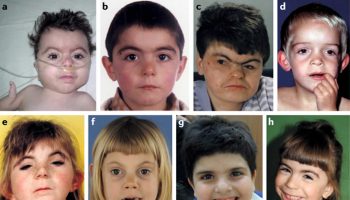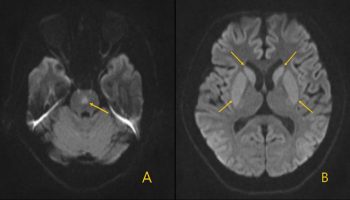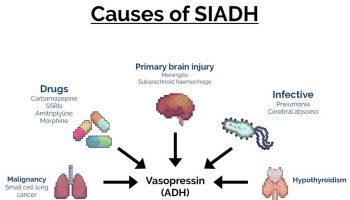Toddler defiance
It is a toddler’s job to be defiant. There is now emerging epidemiological evidence that a substantial proportion of toddlers in the general population may be experiencing a significant opposition-defiance problem before 2 years of age 1. Many disruptive behaviors already are part of the behavioral repertoire of the child by the end of the second year of life 2. The next 2 years of life also are often considered to be very important for children’s socio-emotional development 3. This is the period in your child’s development when she or he begins to understand that she/he is separate from you and is naturally eager to seek out more independence and control over her/his world. The problem, of course, is that while their desire to be their own person is coming into full gear, toddlers have not yet mastered self control. They are still driven by their needs, wants, and impulses, not by logic and reason. For better or worse, toddlers’ most frustrating behaviors are usually quite normal and developmentally appropriate.
It’s important to keep in mind that some toddlers are simply, by nature, more likely to be defiant than others. Children whose emotional reactions are big and intense, as well as children who are more cautious and fearful, may be more oppositional than children who are easy going and flexible. They tend to have a more difficult time with change and therefore protest, especially at transition times (e.g., getting into the car seat, bedtime, or going to a new place), as these experiences can be quite stressful for them.
Even the best-behaved children can be difficult and challenging at times. But if your child or teenager has a frequent and persistent pattern of anger, irritability, arguing, defiance or vindictiveness toward you and other authority figures, he or she may have oppositional defiant disorder.
As a parent, you don’t have to go it alone in trying to manage a child with oppositional defiant disorder. Doctors, mental health professionals and child development experts can help.
Behavioral treatment of oppositional defiant disorder involves learning skills to help build positive family interactions and to manage problematic behaviors. Additional therapy, and possibly medications, may be needed to treat related mental health disorders.
Your child isn’t likely to see his or her behavior as a problem. Instead, he or she will probably complain about unreasonable demands or blame others for problems. If your child shows signs that may indicate oppositional defiant disorder or other disruptive behavior, or you’re concerned about your ability to parent a challenging child, seek help from a child psychologist or a child psychiatrist with expertise in disruptive behavior problems.
Ask your primary care doctor or your child’s pediatrician to refer you to the appropriate professional.
Dealing with a defiant toddler
No two children or families are alike. Thinking about the following questions can help you adapt and apply the information and strategies below to your unique child and family.
- What does your child tend to be most oppositional about? What do these things have in common? Why do you think this is? How can this understanding help you help your child cope better?
- How do you respond when your child is being defiant? What works? What doesn’t? What can you learn from this?
How to respond to your toddler’s defiant behavior
Validate your child’s feelings
- “I know you don’t want to put your pajamas on. It’s hard to go from playtime to bedtime.”
Set the limit
- “But it’s time for sleep so you can grow big and strong.”
Offer a few choices (acceptable to you)
- “Do you want to put your PJs on before or after we read books?” You might also give your child a choice between two pairs of pajamas she wants to wear. Choices give children some control in positive ways and can reduce defiance.
Use humor
This is a great way to lighten up the moment. You might put your child’s PJ bottoms on your head, or see if they fit onto his favorite stuffed animal. Humor gives everyone a chance to cool off.
Encourage your child to use his imagination
For a child who refuses to go to bed: “Teddy is soooo tired. He wants you to cuddle with him to help him fall asleep.” Or, when a child refuses to clean up: “These cars want to go back in the basket with their friends. Let’s race to see who can get more cars in there the fastest!”
Enforce the limit without anger
If none of these strategies work, and your child is still digging in her heels, calmly and firmly implement the limit. “You can get into the car seat or I can put you in. You decide.” If she resists, then calmly but firmly (not angrily) pick her up and strap her in. In a soothing voice tell her you know that she hates getting in the car seat, but it keeps her safe—and that’s your number one job.
Help your child recover
Pay no attention to the tantrum. Just start talking about something totally unrelated: “Wow, look at that big doggie coming down the street.”
Ignoring the behaviors you want to eliminate is the fastest way to be rid of them
The exception to this rule is if your child is hurting himself or someone else—that is, hitting, slapping, punching, and so on. Then stop him from the aggressive behavior and calmly but sternly say, “No hitting. You can feel mad, but you cannot hit. Hitting hurts.”
Avoid giving in
If you give into tantrums, your child learns that if she pushes hard enough, she’ll get what she wants. This will also make it more difficult the next time you try to enforce a limit.
What is oppositional defiant disorder?
Oppositional defiant disorder is a pattern of disobedient, hostile, and defiant behavior toward authority figures. Oppositional defiant disorder is a childhood behavior problem.
Oppositional defiant disorder is more common in boys than in girls. Some studies have shown that it affects 20% of school-age children. However, most experts believe this figure is high due to changing definitions of normal childhood behavior. It may also possibly have racial, cultural, and gender biases.
Oppositional defiant disorder behavior typically starts by age 8. However, it may start as early as the preschool years. This disorder is thought to be caused by a combination of biological, psychological, and social factors.
A child with oppositional defiant disorder:
- Won’t do what people ask
- Actively does not follow adults’ requests
- Thinks that what she’s being asked to do is unreasonable
- Gets angry and aggressive about being asked to do things
- Angry and resentful of others
- Argues with adults
- Blames others for own mistakes
- Has few or no friends or has lost friends
- Is in constant trouble in school
- Loses temper
- Is spiteful or seeks revenge
- Is touchy or easily annoyed
Oppositional defiant disorder can vary in severity:
- Mild. Symptoms occur only in one setting, such as only at home, school, work or with peers.
- Moderate. Some symptoms occur in at least two settings.
- Severe. Some symptoms occur in three or more settings.
For some children, symptoms may first be seen only at home, but with time extend to other settings, such as school and with friends.
All children are disobedient and cranky sometimes, especially if they’re tired, upset or frustrated. But a child with oppositional defiant disorder behaves like this a lot, and the oppositional defiant disorder behavior is so severe that the child has trouble doing ordinary, everyday things. Children with oppositional defiant disorder often have other difficulties like learning disabilities, attention deficit hyperactivity disorder, anxiety disorders, mood disorders or language impairment.
It’s normal to hope that your child will grow out of oppositional defiant disorder, but oppositional defiant disorder won’t go away by itself. Your child needs professional diagnosis and treatment early on. This will help your child develop the skills he needs to make and keep friends, get and keep a job, and build a support network later in life.
If you think your child might have oppositional defiant disorder, start by speaking with your doctor for a referral to a pediatrician, psychiatrist or psychologist. These health professionals can diagnose oppositional defiant disorder.
Oppositional defiant disorder causes
There’s no known clear cause of oppositional defiant disorder. Contributing causes may be a combination of inherited and environmental factors, including:
- Genetics — a child’s natural disposition or temperament and possibly neurobiological differences in the way nerves and the brain function
- Environment — problems with parenting that may involve a lack of supervision, inconsistent or harsh discipline, or abuse or neglect
Risk factors for developing oppositional defiant disorder
It’s hard to say why children develop oppositional defiant disorder. Oppositional defiant disorder is a complex problem. It’s probably not because of any one thing. Possible risk factors for oppositional defiant disorder include:
- Temperament — a child who has a temperament that includes difficulty regulating emotions, such as being highly emotionally reactive to situations or having trouble tolerating frustration
- Parenting issues — a child who experiences abuse or neglect, harsh or inconsistent discipline, or a lack of parental supervision
- The relationship between children and parents – for example, if children and parents haven’t been able to bond or respond to each other in consistently loving ways
- Other family issues — a child who lives with parent or family discord or has a parent with a mental health or substance use disorder
- Low academic performance at school – for example, if children have learning difficulties
- Speech and language problems in everyday life
- Poor social skills, poor problem-solving skills and memory problems
- Parenting and family factors – for example, inconsistent and harsh discipline, and a lot of family stress
- School environmental factors – for example, schools with harsh punishment or unclear rules, expectations and consequences
- Community factors – for example, negative influences from peers, neighborhood violence and a lack of positive things to do with free time.
- Environment — oppositional and defiant behaviors can be strengthened and reinforced through attention from peers and inconsistent discipline from other authority figures, such as teachers
Oppositional defiant disorder symptoms
Sometimes it’s difficult to recognize the difference between a strong-willed or emotional child and one with oppositional defiant disorder. It’s normal to exhibit oppositional behavior at certain stages of a child’s development.
Signs of oppositional defiant disorder generally begin during preschool years. Sometimes oppositional defiant disorder may develop later, but almost always before the early teen years. These behaviors cause significant impairment with family, social activities, school and work.
The Diagnostic and Statistical Manual of Mental Disorders (DSM-5), published by the American Psychiatric Association, lists criteria for diagnosing oppositional defiant disorder. The DSM-5 criteria include emotional and behavioral symptoms that last at least six months.
Angry and irritable mood:
- Often and easily loses temper
- Is frequently touchy and easily annoyed by others
- Is often angry and resentful
Argumentative and defiant behavior:
- Often argues with adults or people in authority
- Often actively defies or refuses to comply with adults’ requests or rules
- Often deliberately annoys or upsets people
- Often blames others for his or her mistakes or misbehavior
Vindictiveness:
- Is often spiteful or vindictive
- Has shown spiteful or vindictive behavior at least twice in the past six months
Oppositional defiant disorder prevention
There’s no guaranteed way to prevent oppositional defiant disorder. However, positive parenting and early treatment can help improve behavior and prevent the situation from getting worse. The earlier that oppositional defiant disorder can be managed, the better.
Be consistent about rules and consequences at home. Don’t make punishments too harsh or inconsistent.
Model the right behaviors for your child. Abuse and neglect increase the chances that this condition will occur.
Treatment can help restore your child’s self-esteem and rebuild a positive relationship between you and your child. Your child’s relationships with other important adults in his or her life — such as teachers and care providers — also will benefit from early treatment.
Oppositional defiant disorder possible complications
Children and teenagers with oppositional defiant disorder may have trouble at home with parents and siblings, in school with teachers, and at work with supervisors and other authority figures. Children with oppositional defiant disorder may struggle to make and keep friends and relationships.
In many cases, children with oppositional defiant disorder grow up to have conduct disorder as teenagers or adults. In some cases, children may grow up to have antisocial personality disorder.
Oppositional defiant disorder may lead to problems such as:
- Poor school and work performance
- Antisocial behavior
- Impulse control problems
- Substance use disorder
- Suicide
Many children and teens with oppositional defiant disorder also have other mental health disorders, such as:
- Attention-deficit/hyperactivity disorder (ADHD)
- Conduct disorder
- Depression
- Anxiety
- Learning and communication disorders
Treating these other mental health disorders may help improve oppositional defiant disorder symptoms. And it may be difficult to treat oppositional defiant disorder if these other disorders are not evaluated and treated appropriately.
Oppositional defiant disorder diagnosis
To determine whether your child has oppositional defiant disorder, the mental health professional will likely do a comprehensive psychological evaluation. Because oppositional defiant disorder often occurs along with other behavioral or mental health problems, symptoms of oppositional defiant disorder may be difficult to distinguish from those related to other problems.
Your child’s evaluation will likely include an assessment of:
- Overall health
- Frequency and intensity of behaviors
- Emotions and behavior across multiple settings and relationships
- Family situations and interactions
- Strategies that have been helpful — or not helpful — in managing problem behaviors
- Presence of other mental health, learning or communication disorders
To fit the oppositional defiant disorder diagnosis, the pattern must last for at least 6 months and must be more than normal childhood misbehavior.
The pattern of behaviors must be different from those of other children around the same age and developmental level. The behavior must lead to significant problems in school or social activities.
To be diagnosed with oppositional defiant disorder, a child must have constant angry and cranky moods, along with negative, defiant behavior that upsets other people. A child must also have at least four symptoms from the following list.
The child:
- loses his temper
- argues with adults
- actively refuses to do what adults ask and disobeys rules
- often deliberately annoys people
- often blames others for mistakes or challenging behavior
- is easily annoyed by others
- is often nasty or unkind.
A child with oppositional defiant disorder shows the symptoms:
- very often
- in a way that interferes with usual daily activities
- for at least six months.
Children with symptoms of this disorder should be evaluated by a psychiatrist or psychologist. In children and adolescents, the following conditions can cause similar behavior problems and should be considered as possibilities:
- Anxiety disorders
- Attention-deficit/hyperactivity disorder (ADHD)
- Bipolar disorder
- Depression
- Learning disorders
- Substance abuse disorders
Oppositional defiant disorder treatment
The best treatment for a child with oppositional defiant disorder is to talk with a mental health professional in individual and possibly family therapy. The parents should also learn how to manage the child’s behavior.
Treatment for oppositional defiant disorder primarily involves family-based interventions, but it may include other types of psychotherapy and training for your child — as well as for parents. Treatment often lasts several months or longer. It’s important to treat any co-occurring problems, such as a learning disorder, because they can create or worsen oppositional defiant disorder symptoms if left untreated.
Medications alone generally aren’t used for oppositional defiant disorder unless your child also has another mental health disorder. If your child has coexisting disorders, such as ADHD, anxiety, childhood psychosis or depression, medications may help improve these symptoms.
The cornerstones of treatment for oppositional defiant disorder usually include:
- Parent training. A mental health professional with experience treating oppositional defiant disorder may help you develop parenting skills that are more consistent, positive and less frustrating for you and your child. In some cases, your child may participate in this training with you, so everyone in your family develops shared goals for how to handle problems. Involving other authority figures, such as teachers, in the training may be an important part of treatment.
- Parent-child interaction therapy. During parent-child interaction therapy, a therapist coaches parents while they interact with their child. In one approach, the therapist sits behind a one-way mirror and, using an “ear bug” audio device, guides parents through strategies that reinforce their child’s positive behavior. As a result, parents learn more-effective parenting techniques, the quality of the parent-child relationship improves, and problem behaviors decrease.
- Individual and family therapy. Individual therapy for your child may help him or her learn to manage anger and express feelings in a healthier way. Family therapy may help improve your communication and relationships and help members of your family learn how to work together.
- Cognitive problem-solving training. This type of therapy is aimed at helping your child identify and change thought patterns that lead to behavior problems. Collaborative problem-solving — in which you and your child work together to come up with solutions that work for both of you — can help improve oppositional defiant disorder-related problems.
- Social skills training. Your child may also benefit from therapy that will help him or her be more flexible and learn how to interact more positively and effectively with peers.
As part of parent training, you may learn how to manage your child’s behavior by:
- Giving clear instructions and following through with appropriate consequences when needed
- Recognizing and praising your child’s good behaviors and positive characteristics to promote desired behaviors
Although some parenting techniques may seem like common sense, learning to use them consistently in the face of opposition isn’t easy, especially if there are other stressors at home. Learning these skills will require routine practice and patience.
Most important in treatment is for you to show consistent, unconditional love and acceptance of your child — even during difficult and disruptive situations. Don’t be too hard on yourself. This process can be tough for even the most patient parents.
How you can manage your child’s behavior at home
At home, you can begin chipping away at problem behaviors of oppositional defiant disorder by practicing these strategies:
- Recognize and use praise to encourage positive behaviors. Be as specific as possible, such as, “I really liked the way you helped pick up your toys tonight”.
- Providing rewards for positive behavior also may help, especially with younger children.
- Look at using a structured reward system like a reward chart. These work especially well for children aged 3-8 years.
- Give short, brief, direct and specific instructions – for example, ‘Would you like to do your homework now, or after the next TV show?’
- Model the behavior you want your child to have. Demonstrating appropriate interactions and modeling socially appropriate behavior can help your child improve social skills.
- Try to avoid using negative consequences, but follow up on uncooperative behavior straight away. So if your child doesn’t do what you ask, ask again and say, ‘This is the last time I am going to tell you’. If your child still doesn’t cooperate, be ready with a consequence like loss of privilege.
- Pick your battles and avoid power struggles. Almost everything can turn into a power struggle, if you let it.
- Set limits by giving clear and effective instructions and enforcing consistent reasonable consequences. Discuss setting these limits during times when you’re not confronting each other.
- Set up a routine by developing a consistent daily schedule for your child. Asking your child to help develop that routine may be beneficial.
- Build in time together by developing a consistent weekly schedule that involves you and your child spending time together.
- Work together with your partner or others in your household to ensure consistent and appropriate discipline procedures. Also enlist support from teachers, coaches and other adults who spend time with your child.
- Assign a household chore that’s essential and that won’t get done unless the child does it. Initially, it’s important to set your child up for success with tasks that are relatively easy to achieve and gradually blend in more important and challenging expectations. Give clear, easy-to-follow instructions.
- Be prepared for challenges early on. At first, your child probably won’t be cooperative or appreciate your changed response to his or her behavior. Expect behavior to temporarily worsen in the face of new expectations. Remaining consistent in the face of increasingly challenging behavior is the key to success at this early stage.
Your child needs to know that she’s important to you. One of the best ways you can send this message is by spending positive time together doing things your child enjoys. This will help to strengthen your relationship with your child.
With perseverance and consistency, the initial hard work often pays off with improved behavior and relationships.
Working with your child’s school on oppositional defiant disorder
You can work with your child’s school to improve your child’s classroom and playground behavior. For example, you could talk to staff about:
- classroom behavior management programs – for example, seating your child at the front of the classroom away from distractions
- structured classroom activities – for example, having a daily planner on the wall that everyone can see and telling children when activities are about to change
- alternative thinking strategies – for example, allowing children to offer their own ideas about ways to solve problems
- emotional regulation programs that teach children how to manage strong emotions like anger and frustration
- resilience, wellbeing and bullying intervention programs
- rewards for good behavior, so that your child doesn’t feel that he’s always being punished for unacceptable behavior.
Looking after yourself when your child has oppositional defiant disorder
It can be challenging to balance looking after yourself with looking after your child with oppositional defiant disorder and other children in the family.
Here are some tips on how you can care for yourself:
- Make some time every day to be on your own to read a book, watch a TV show or go for a walk. Start with five minutes at the end of the day if that’s all you have.
- Ask family, friends or members of your support network to look after your child for a little while so you can have some time to yourself.
- Make time for some physical activity – for example, walking, yoga or swimming. A bit of exercise can give you more energy to work with your child.
- Make some time to do fun activities with your partner. Your child’s difficult behavior can be stressful on your relationship, especially if you and your partner don’t agree about how to handle your child’s behavior.
- Seek professional help from a doctor or counselor if you feel you can’t cope.
Sharing support, advice and experiences with other parents can be a big help. You could try starting a conversation in an online forum or joining a parent support group.
Behavior management plans for oppositional defiant disorder
Managing oppositional defiant disorder in children is about first accepting that your child will behave in challenging ways.
The next step is working with health professionals to develop a behavior management plan, which can make the behavior easier to handle – for you and your child.
A good plan will help your child:
- learn how to improve her behavior and understand how it affects other people
- manage strong emotions like anger and anxiety
- improve the way she solves problems, communicates and gets on with other children.
These things will help your child with making and keeping friends, saying what he thinks without getting angry, accepting no for an answer and playing well with others.
A good behavior management plan will also help you cope with your child’s challenging behavior by helping you:
- understand the causes of your child’s behavior
- work out how you can increase your child’s positive behavior and manage her challenging behavior
- support your child in managing strong emotions and improving social skills
- work on strengthening your family relationships.
Oppositional defiant disorder prognosis
Some children respond well to treatment, while others do not.
- Baillargeon RH, Keenan K, Cao G. The development of opposition-defiance during toddlerhood: a population-based cohort study. J Dev Behav Pediatr. 2012;33(8):608‐617. doi:10.1097/DBP.0b013e3182653c6c[↩]
- Forman DR. Autonomy, compliance, and internalization. In: Brownell CA, Kopp CB, editors. Socioemotional development in the toddler years: Transitions and transformations. New York: Guilford Press; 2007. pp. 285–319.[↩]
- Brownell CA, Kopp CB. Socioemotional development in the toddler years: Transitions and transformations. New York: Guilford Press; 2007.[↩]





